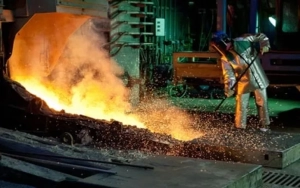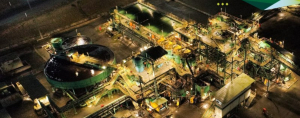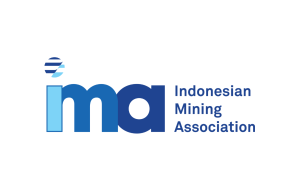Indonesia will loss IDR 57 trillion revenue if government bans export of copper, Freeport says
Vice President Corporate Communication of PT Freeport Indonesia Katri Krisnati, said that Indonesia will lose IDR 57 trillion in the form of tax, dividends and non tax revenue this year if the government suspend the operation of PT Freeport Indonesia. In addition to the losses, several regions in Papaua will lose IDR 8.5 trillion in revenue in the form of provincial government budget.
Krisnati added that the company continues to have dialog with the government and all stakeholders to review the impacts of the copper export ban. "We hope that the government consider derivative regulation covering the details of minerals that can be sold and cannot be sold abroad," Krisnati stated in a statement on April 12, 2023.
President Joko “Jokowi” Widodo announced the ban on raw mineral exports on January 10, 2023. The government already banned the export of nickel, followed by bauxite and then copper, which would be implemented on June 2023. The government plans to impose sanctions if the company fails to comply with the requirement.
Meanwhile, Freeport Indonesia is developing a smelter that can turn copper concentrate into cathodes with an annual capacity of 1.7 million tons.
The smelter construction will cost about US$3 billion. The funds for the smelter would come from a loan and the company’s equity.
In general, Krisnati said that copper export ban can cause the suspension of all operational activities of PT Freeport Indonesia . The suspension can significantly impacted all operation and sales of mining commodities.
Bans ores not concentrate
Deputy Executive Director of Indonesia Mining Association Djoko Widajatno, said that mineral and coal law only bans the export of copper ores and not copper concentrates.
Copper concentrate is a result of a further processes and therefore export of copper concentrates should be allowed. "However, based on obligation in Freeport's Special Mining Permit , the company needs to process the copper ores in a domestic smelter. The first smelter is currently operational in Gersik, while the new one is being developed in Manyar, Gersik," Widajanto said.
Energy and Mineral Resource Minister Arifin Tasrif, said that the government is still evaluating all options before deciding to ban copper export. According to Widajanto, the government is still considering whether to ban or to allow the export of copper concentrates.
One of the government's consideration is the progress of the copper smelters construction. Following a field inspection to Freeport's smelter construction in Manyar, Gersik on March 28, Widajanto said that the progress of the smelter has achieved 57.6%.
Widajatno said Freeport has promised to complete the construction of the smelter by 2024. Because the company has spent half of the total investment value.
Already have an account? Sign In
-
Start reading
Freemium
-
Monthly Subscription
30% OFF$26.03
$37.19/MonthCancel anytime
This offer is open to all new subscribers!
Subscribe now -
Yearly Subscription
33% OFF$228.13
$340.5/YearCancel anytime
This offer is open to all new subscribers!
Subscribe now






